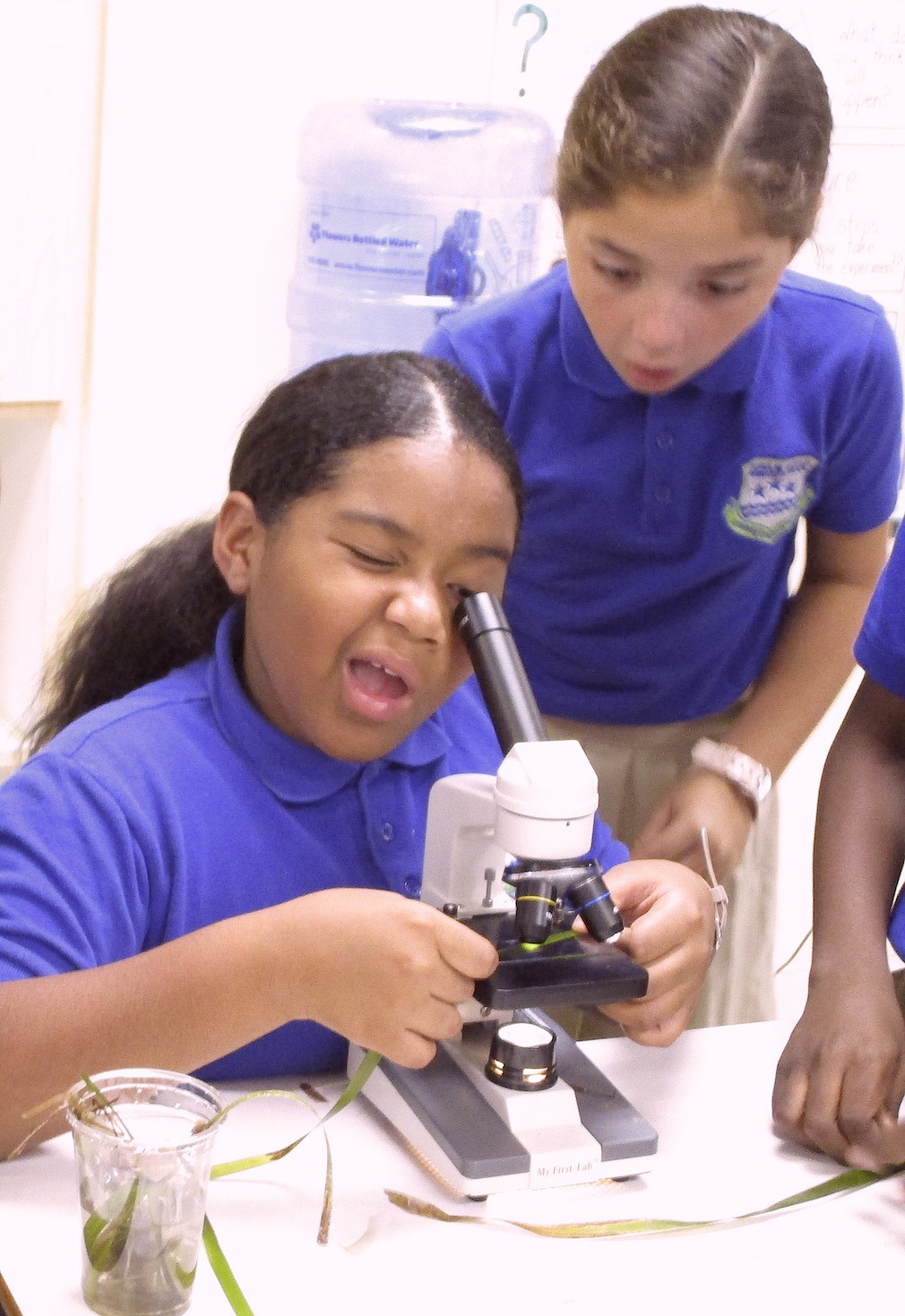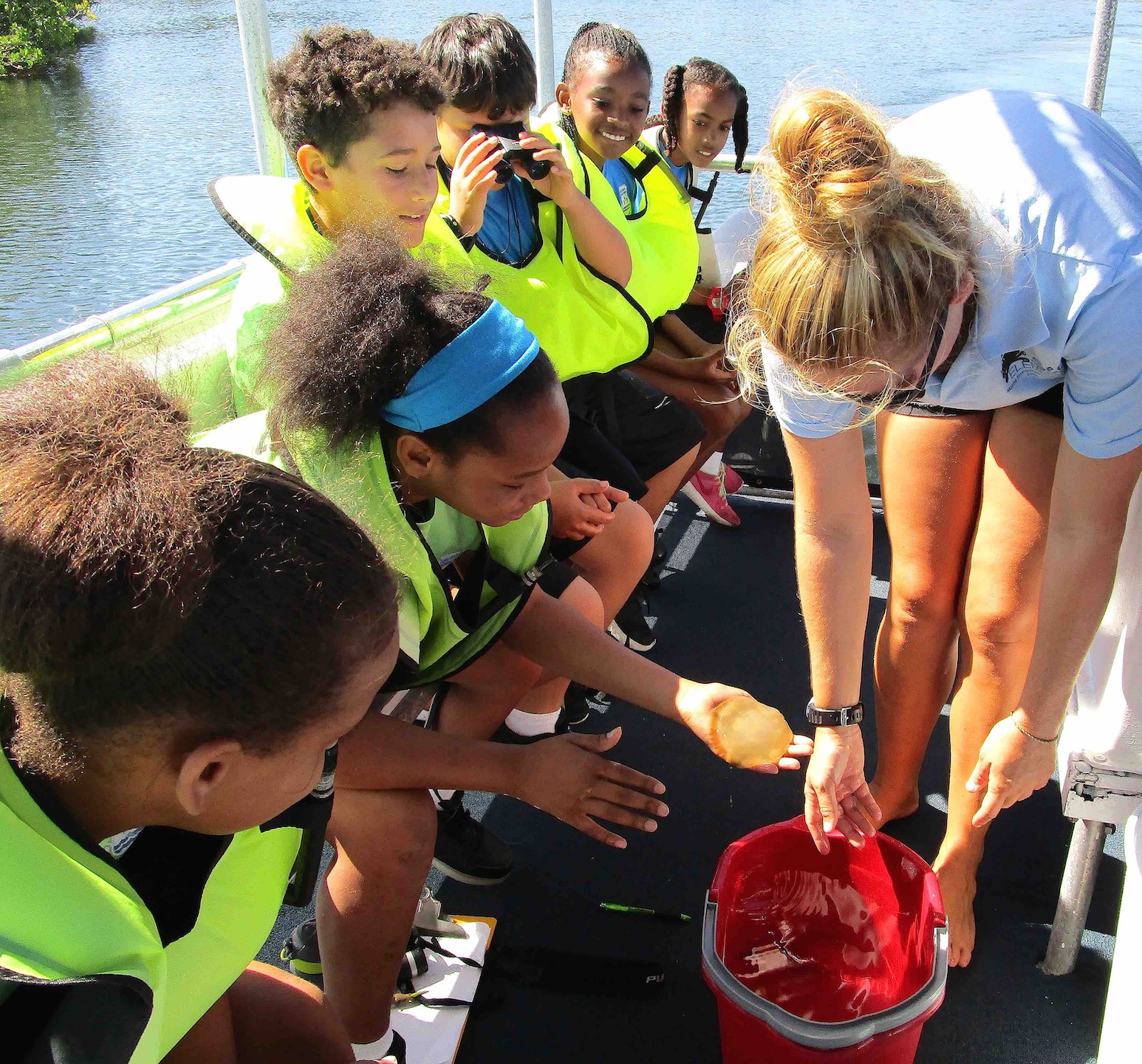Cayman Environmental Education Focus Group established

Local environmental and educational agencies come together to strengthen our connection with the environment as a central tenet of Cayman culture through enhanced and accessible local environmental education for all.


GEORGE TOWN, GRAND CAYMAN. A range of Cayman-based environmental organisations have joined forces to provide an integrated and exciting spectrum of curriculum-linked outdoor teaching activities for the local community starting with a strong focus in Cayman’s primary schools.


In November 2019, several local environmental organisations came together with the Ministry of Education, Youth, Sports, Agriculture, and Lands (MEYSAL), the Ministry of Commerce, Planning and Infrastructure (CPI), the Department of the Environment (DoE) and Department of Education Services (DES) identified the real need for support of the teaching and promotion of the environment for all students. Cayman’s cultural connection with both the land and the sea are paramount to both our tourism product as well as the safeguarding of our islands for present and future generations.
This group is currently made up of representatives from the National Trust for the Cayman Islands, Guy Harvey Ocean Foundation, Reef Environmental Educational Foundation, Mangrove Education Project, Central Caribbean Marine Institute, Sea Elements, together with the Energy Policy Coordinator from the CPI and representatives from the DoE, DES and MEYSAL.
By working together, participating organisations hope to increase access and utilisation of supplementary materials and activities developed by these organisations to aid teachers and parents. In addition, teachers will be provided with outdoor field trips to explore Cayman’s unique natural resources both on and offshore. In class activities will provide supporting resources to highlight the knowledge acquired during the field trips.
These resources often tend to be underutilized because little is known about them in the schools. Furthermore, parents will also be made aware of environmental concerns in Cayman and the vital ecosystems that the country possesses. Environmental issues may not be top of mind for many when facing the daily task of supporting their families and supervising schoolwork.
Many parents also must overcome cultural/historical fear and uncertainty of the ocean and marine species, which run counter to the passion and knowledge students can benefit from.
After several meetings, the Focus Group collectively established its vision: to strengthen our connection with the environment as a central tenet of Caymanian culture through enhanced and accessible environmental education for all.
To achieve this the organisation will strive to:
* Facilitate collaboration between environmental organisations – to improve communication between organisations to maintain partnerships in education projects.
* Engage schools and educational groups in science education – to enhance engagement and communication between schools and external education organisations (included but not limited to charities, non-profits, and government) to facilitate high-quality, up-to-date and relevant environmental education.
This group started small but will expand in due course to include all local environmental educational organizations across the three islands.
During the focus group meetings, the group spent time learning about the mission of each organization, their available educational resources, their experiences with environmental education in the Cayman Islands, and familiarizing everyone with the current curricula layout.
“We’re all aiming to accomplish similar goals,” says Jessica Harvey, Project Manager of the Guy Harvey Ocean Foundation, “By pooling our resources and experiences with a strong willingness to work and support each other, the Cayman Islands will be in a better position to adapt to our ever changing business, development and natural environment; help our community become more sustainable users of our natural resources and lead by example as a country recognizing we can no longer continue to take our natural resources for granted.”
The COVID-19 pandemic has reinforced this need and demonstrated how, if given an opportunity, nature will bounce back stronger than before and there are plenty of entrepreneurial ideas waiting to be discovered. Schools and families are having to adapt learning strategies quickly, pay more attention to how their students and children learn and better understand how access to the environment is fundamental for everyone’s wellbeing.
Initially, a website called Cayman Environmental Education will be created to simplify the search for local environmental information for parents and teachers. It will include links to educational material from the Focus Group members along with their profile and contact details. A calendar will also be available and updated regularly to showcase different environmental and education activities hosted in the Cayman Islands.
“We are delighted to all be part of the formulation of a committed group of environmental experts, to support the environmental education of Caymans youth,” says the Focus Group, “We are confident that it will be a highly valuable resource both now and for many years to come.”
About the Guy Harvey Ocean Foundation (GHOF): Founded in 2008 by world renowned artist, scientist and conservationist Dr. Guy Harvey, the GHOF conducts scientific research and hosts educational programs aimed at conserving the marine environment. The GHOF will help ensure that future generations can enjoy and benefit from a naturally balanced ocean ecosystem where fish, and other marine wildlife, flourish. For more information on Guy Harvey, visit http://www.GuyHarvey.com and for more information on the GHOF, visit http://www.GHOF.org.
About the Central Caribbean Marine Institute (CCMI): CCMI is a not-for-profit organization founded in 1998 to protect the future of coral reefs, envisioning a world with vibrant oceans and healthy coral reef ecosystems. We seek to be the Caribbean’s premier marine research institute by delivering cutting edge research, transforming conservation strategy and developing education programmes of excellence – discovering and promoting real solutions to declining ocean health. CCMI’s plan is to invigorate key species and understand key ocean processes that drive reef resilience. CCMI supports early career scientists who are INNOVATING ways to improve coral reef health. We are TRANSFORMING conservation strategy and work to inspire the CHANGE that is needed to achieve our mission. CCMI are PIONEERS in the region working to reverse the declines of coral reefs. For more information on CCMI, visit http://www.reefresearch.org.
About the National Trust for the Cayman Islands (CINT): The National Trust has been protecting the future of Cayman’s heritage since its inception in 1987. We are a nonprofit, non-governmental organisation created to preserve the history and biodiversity of the Cayman Islands. Through education and conservation, we work to protect environmentally sensitive and historically significant sites across all three Cayman Islands. For more information visit http://www.nationaltrust.org.ky.
About the Cayman Islands Department of Environment (DoE): The Mission of the Department of Environment is to facilitate responsible management and sustainable use of the natural environment and the natural resources of the Cayman Islands; through environmental protection and conservation, wise use, scientific research and public education. For more information see the DoE website, http://www.DoE.ky.
About the National Energy Policy from the Ministry of Commerce, Planning and Infrastructure: The Ministry of Commerce, Planning and Infrastructure (CPI) is responsible for overseeing the implementation of the Cayman Islands National Energy Policy 2017-2037 (NEP). The Vision of the NEP is: “Enhancing and embracing a sustainable lifestyle through responsible and innovative energy supply and consumption”. The NEP has established the following high-level targets:
• 70% of total electricity generation to come from renewable sources by 2037
• 4.8 tCO2e of Greenhouse Gas (GHG) emissions per capita by 2030
One of the goals of the NEP is to encourage and support the introduction of sustainable/renewable energy related disciplines into the curricula at tertiary, secondary and vocational levels. A website has been created for persons to follow the implementation process. Please visit http://www.energy.gov.ky
About the Mangrove Education Project (MEP): Working with its international partner, the Mangrove Action Project, MEP has developed and implemented 20 years of teaching about Cayman’s Marvellous Mangroves in all Cayman’s schools. The hands-on, science based programme is directly linked to the primary school curricula. It has been translated and adapted for schools in 16 countries worldwide. The group is currently working on expanding these resources to include the entire coastal lagoon ecosystem – mangroves, seagrass and coral reefs. For more info on MAP visit: www.mangroveactionproject.org. for MEP visit: marvellousmangroves.org.
About the Reef Environmental Education Foundation (REEF): Reef Environmental Education Foundation (REEF) is an international marine conservation organization that implements hands-on programs to involve local communities in conservation-focused activities. REEF was founded in 1990 and is based in Key Largo, Florida, with remote staff in Illinois, California, and Washington. Its mission is to protect biodiversity and ocean life by actively engaging and inspiring the public through citizen science, education, and partnerships with the scientific community. For more information on REEF visit http://www.reef.org.
About Sea Elements: Sea Elements is an Eco-Tour Company offering fun, interactive educational tours to the cruise ship and stayover tourists and residents in Grand Cayman. Our partnership with local schools is long established and serves as a bridge between the academic classroom and the interactive experience on the water. We have links with the all the local schools, both private and public; and ensure children from Kindergarten to A Level can access and learn about Cayman’s marine life through Guided Mangrove Boat Tours, Kayak and Snorkel Trips. For more information visit http://www.caymanseaelements.com.
About the Ministry of Education, Youth, Sports, Agriculture, and Lands (MEYSAL):
Our subject areas impact many stakeholders in several industries. We aim to create sustainable relationships that will positively impact how each area operates. We are a ministry focused on enabling our people to realise their hopes and dreams of becoming productive and valued members of Caymanian society. For more information visit: http://www.education.gov.ky/
About the Cayman Islands Department of Education Services (DES): The Department of Education Services (DES) is the operational arm of the Cayman Islands Government education service. While the Ministry of Education provides the strategic and policy direction for government schools, DES provides the resources and support to schools to implement the various policies and procedures. For more information visit https://schools.edu.ky/Pages/ADWWD.aspx





